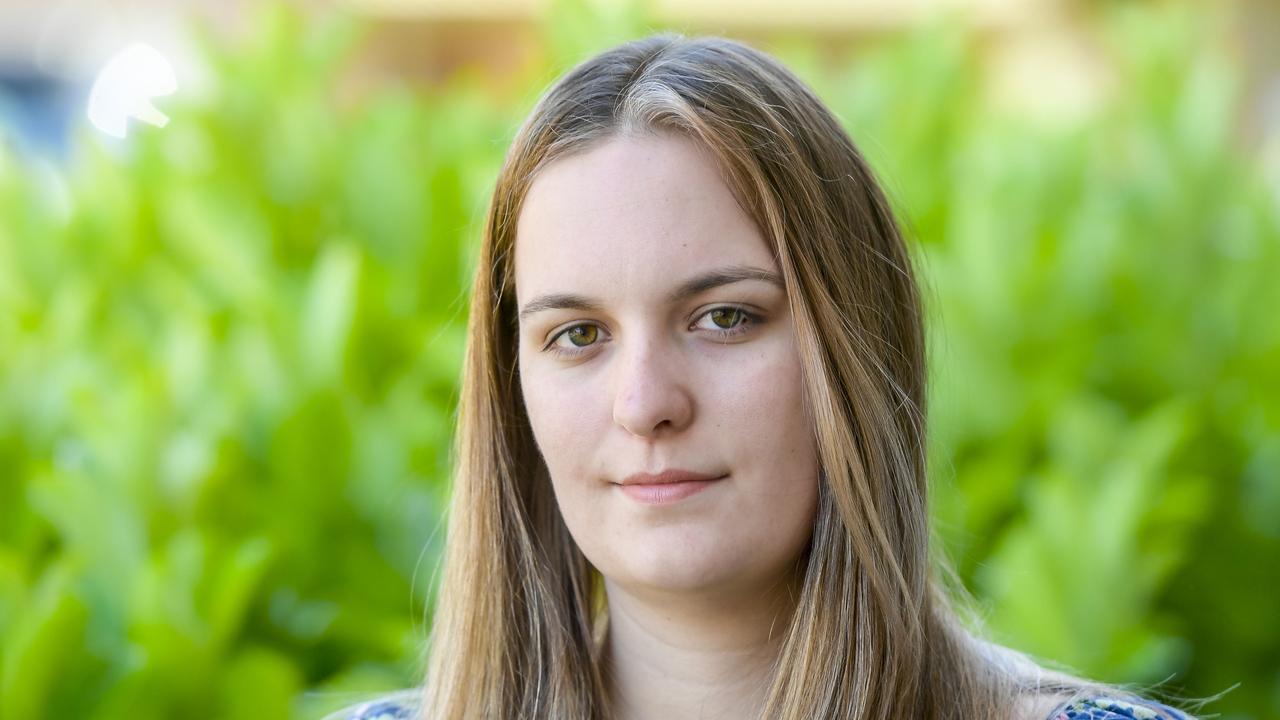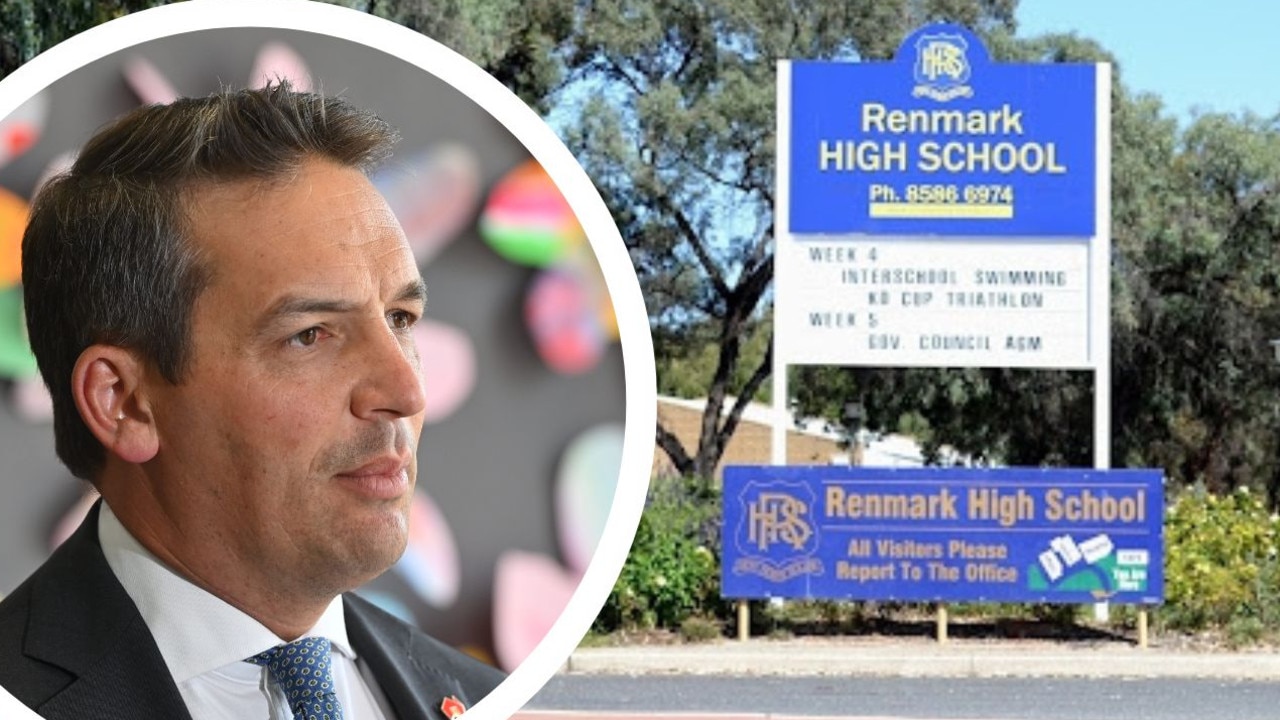‘We’re not coming up here just to play a game of football’: Port Power works with Anangu to inspire next generation of role models
It’s about more than just football when Port Adelaide visits a community between “two worlds”. It’s about teaching kids what it takes to be leaders. Find out how.
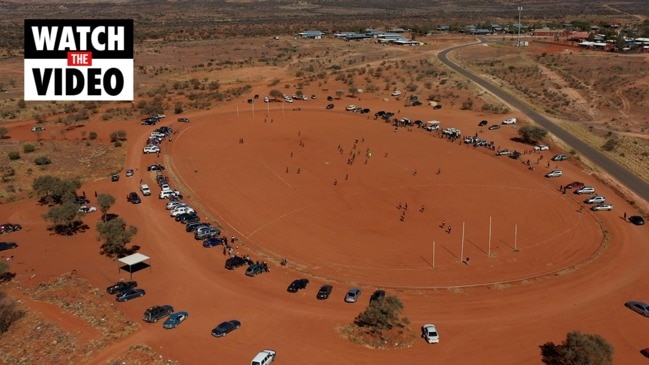
Education
Don't miss out on the headlines from Education. Followed categories will be added to My News.
There is no one around as far as the eye can see, when Rueben Burton walks to the top of a natural rock formation in the middle of the outback.
The day is hot and dry, but a cool wind picks up as he arrives at the peak, where he points towards a barely visible Uluru from the South Australian side of the border.
Beneath the formation is a cave filled with rock art that tells stories of tens of thousands of years of Anangu occupation, depicting how they travelled across the land, surviving with nothing but pure instinct and fearlessness.
On this particular day, Rueben has welcomed staff and players from the Port Adelaide Football Club (PAFC) to the culturally significant site which very few are allowed to enter.
It is not customary to bring outsiders into such a special place, but Rueben knows the world is changing, and believes that his people must change with it.
“It’s a pathway where Anangu has been on a journey and the legacy is for us to mature in two worlds,” he says.
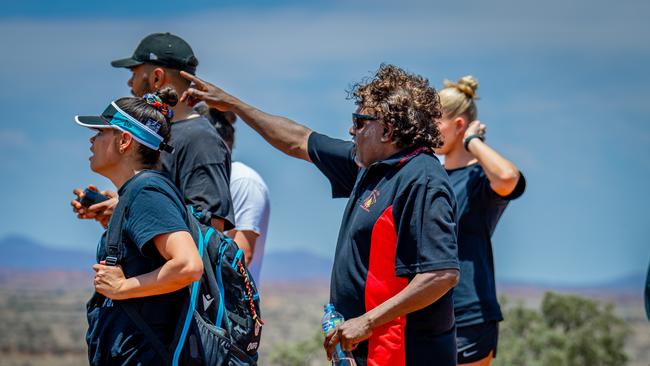
What Rueben is getting at is that he wants to see a shared “connection” of “two-way learning” between Anangu culture and western society, which the PAFC also envisions.
As the executive director of the Pitjantjatjara Yankunytjatjara Education Committee, he supports the PAFC in bringing change to the learning system in the APY Lands, which will see future generations adapt to learning environments outside of their communities.
How the club goes about bringing the “two worlds” together is with football, where all cultures can find common ground.
Across the multiple communities in the APY Lands, “football is like a second culture”, as Rueben puts it.
Children burst with excitement when they see PAFC staff and players kitted out in their colours and gear in their classrooms, during their time to the lands to deliver the Power Community Limited program.
When staff and players visit a class at the Mimili Anangu School, that same excitement is bouncing around the room, as it was for all the other schools and classes they stepped into over the course of a week.
As he starts to speak to students at Mimili, Braedon Talbot, Head of Community Programs for the club soon realises it may be a challenging task.
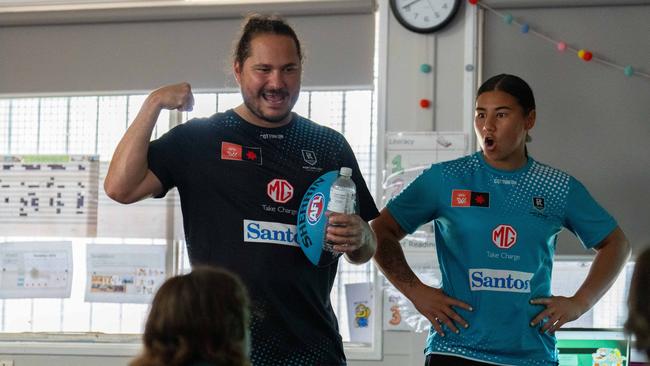
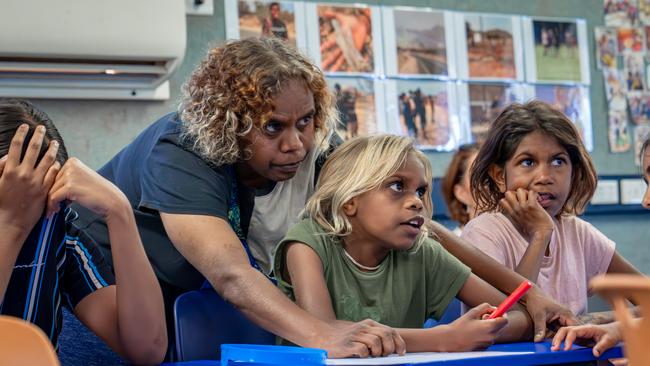
Enthusiasm is through the roof as the kids talk among one another before Marissa Nyuntungka yells out, “kulila”, which in Pitjantjatjara, means “listen up”.
Almost instantly, the room goes dead silent.
The students know Marissa is the ultimate authority, whose job as the Aboriginal Education Worker also means that she is the class translator for the non-Indigenous teachers, who are unable to speak fluent Pitjantjatjara.
It quickly becomes evident just how crucial her role is, and every other school across the region knows also, as they have all employed an Anangu educator to help break down barriers in the classrooms.
Once Marissa brings the kids into line, Braedon continues with what he was doing, flanked by other staff and players, who all ask the kids to write down and call out what they think it “takes to be leaders” in their communities.
What they come up with are simple, yet, important values and qualities.
“Being respectful”, one student says, before another yells out, “being honest”.
Naturally, they know what it takes, but seeing and hearing it from AFL sports stars and club staff gives them that extra kick to do better in the classroom.
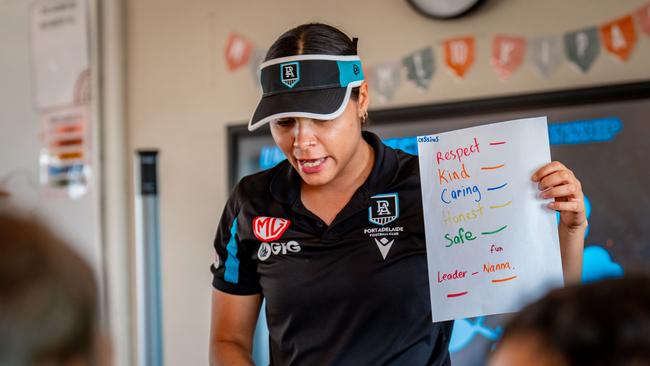
With that in mind, the club uses it as an in to boost the Key Performance Indicators of students throughout the year.
The end goal for the children is to be rewarded by the PAFC with a trip to Adelaide to take part in the club’s Power Cup if they get the work done.
“We’re not coming up here just to play a game of football”, says Braedon, who has been involved with the game since he could walk.
Braedon knows what the power of football can achieve for First Nations communities in Australia, where there are massive gaps in health, education, employment and almost every other aspect of life.
“This is about making sure the kids get that education first,” he says.
“We know they love football and that they can play it whenever they want up here, so we make sure that they work for and earn the opportunity.
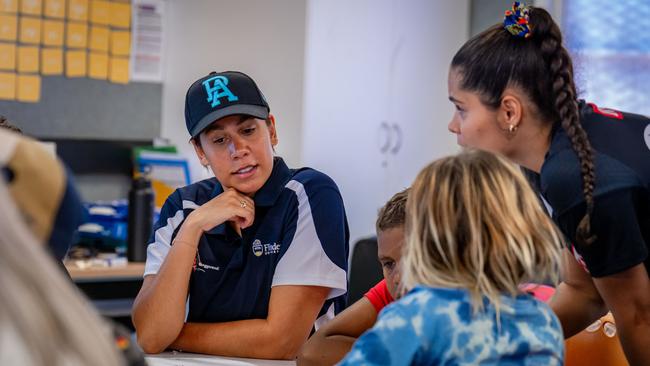
The PAFC ultimately wants to see the pathway to university open and flowing if the children from the APY Lands decide they want to pursue higher education.
But for many of them, university is “not even on their radar”, because you could almost count on one hand just how many from the APY Lands have made the transition from community classrooms to a lecture theatre.
Higher Education should be an option for these students, but they “can’t be what they can’t see”, says Indi Buckskin James, who is the Indigenous Community Partnerships and Pathways Coordinator at Flinders University in Adelaide.
Many of the kids she works with are “first in family” to go to university. This needs to change, she says.
It is her first trip to the APY Lands in collaboration with the PAFC, and says it is a step in the right direction but she does not expect to see students lining up to go to Flinders.
All it takes is a few to make the move then more will follow because they will know that it is a possibility she says.
Showing and telling the students that they can achieve, works when people like the staff and players from the PAFC continue “showing up” and “inspiring” them.
As Rueben put it, “kids see role models, the leaders in their clubs, their people and families”, and they too want to become that.
And he has extended an invitation from his community to the border South Australian community
“They can be a part of that,” says Rueben.
“This is our way. Now we are opening the door, the gate, the bridge that we make for people to enter and to see where we are coming from.”




